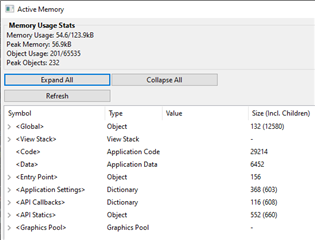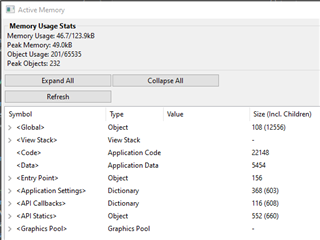I've posted about prettier-extension-monkeyc before, but I've added a bunch of new features that developers will probably like (well, I've been missing them, so maybe you have too).
The new features it implements for VSCode include:
- Goto Definition. Point at a symbol, Ctrl/Cmd click, and it will take you to the definition. Or F12
- Goto References. Right click on a symbol and select "Goto References". It will show you all the references. Or Shift-F12
- Peek Definition/Peek References. Same as above, but in a popup window so you don't lose your place in the original document.
- Rename Symbol. Right click on a local, function, class or module name, and select "Rename Symbol". It will rename all the references. It doesn't yet work for class members/methods.
- Goto Symbol. Type Ctrl/Cmd-Shift-O and pick a symbol from the drop down (which has a hierarchical view of all symbols in the current file). This also appears as an outline across the top of the file.
- Open Symbol By Name. Type Ctrl/Cmd-T, then start typing letters from a symbol name. A drop down will be populated with all matching symbols from anywhere in your project.
Older features include a prettier based formatter for monkeyc, and a monkeyc optimizer that will build/run/export an optimized version of your project.
[edit: My last couple of replies seem to have just disappeared, and the whole conversation seems to be in a jumbled order, so tldr: there's a new test-release at https://github.com/markw65/prettier-extension-monkeyc/releases/tag/v2.0.9 which seems to work for me on linux. I'll do more verification tomorrow, and push a proper update to the vscode store once I'm sure everything is working]




